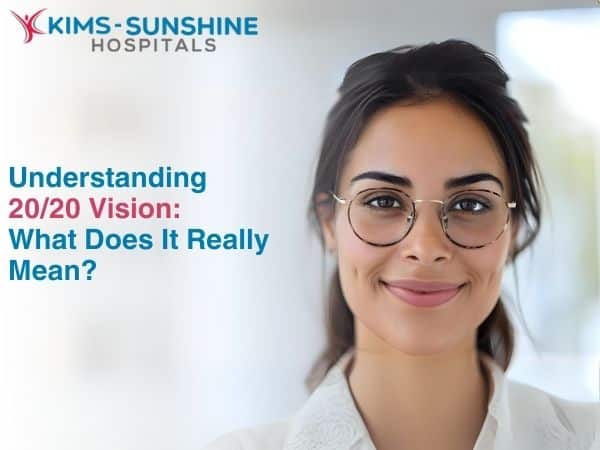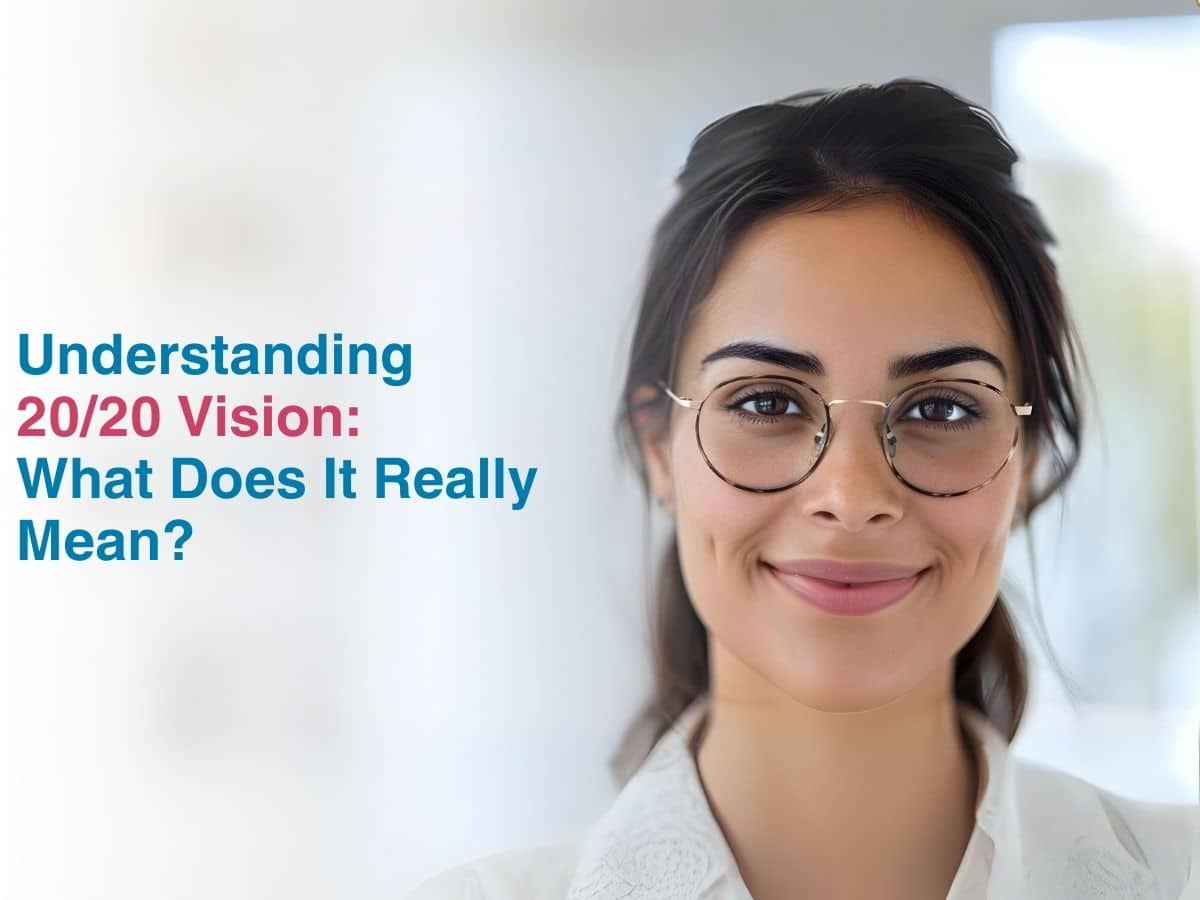
Understanding 20/20 Vision: What Does It Really Mean?

Many of us have annual eye exams and walk out of the clinic very happy when we get 20/20 vision as the result. It is nothing to gloat about but it also means you have normal vision and can see items placed 20 feet away from you clearly. Very few of us can see so far away with good clarity and sharpness and will require spectacles, contact lenses or surgical correction to do so.
Definition and Explanation of 20/20 Vision-
The first 20 on the top means you can see 20 feet away clearly while the denominator or other 20 is used like a comparator- another person looking at some object 20 feet away is still able to see it clearly and sharply like you. But when the value is 20/10, then the other person can see clearly up to 10 feet only and you have better vision as you can see up to 20 feet away. Same rule applies to 20/40 – you can see 20 feet away clearly but the other person can see 40 feet away which means your visual acuity is worse than theirs. These values can also be changed to metres and it will be read as 6/6. The difference between 20/20 vision and perfect vision depends on multiple factors like alignment of the eye, coordination of the eyes, good depth perception, the ability to focus on a particular object and colour vision respectively. Perfect vision is dependent on multiple factors and is hence difficult to achieve. Corrective measures like spectacles try to bring you up to 20/20 which is normal vision. Very rarely, your glasses can help you get to the 20/15 value.
What 20/20 Vision Means for Your Eye Health-
Visual acuity is just focused on sharpness and clarity of an image and not on the other factors mentioned above. Hence, you can have 20/20 vision but still use glasses to get through life. You still need to take good care of your eyes by eating well, getting enough sleep and following the 20-20-20 rule when it comes to being screen bound everyday due to work. This will help reduce strain on your eyes. Eye health obviously needs to be a focus as you get older but children also need to be screened annually.
Conclusion
Yes, it is totally possible to have even better vision than 20/20- like 20/15 but it is nothing special. Good vision is also dependent on a number of other factors like colour and depth perception, eye alignment and coordination etc. We don’t need perfect vision for most of our daily chores and so we can get away with wearing glasses. You can try to keep your eye healthy by ensuring your blood glucose levels are normal, not smoking, getting checked annually and wearing protective gear as needed.






